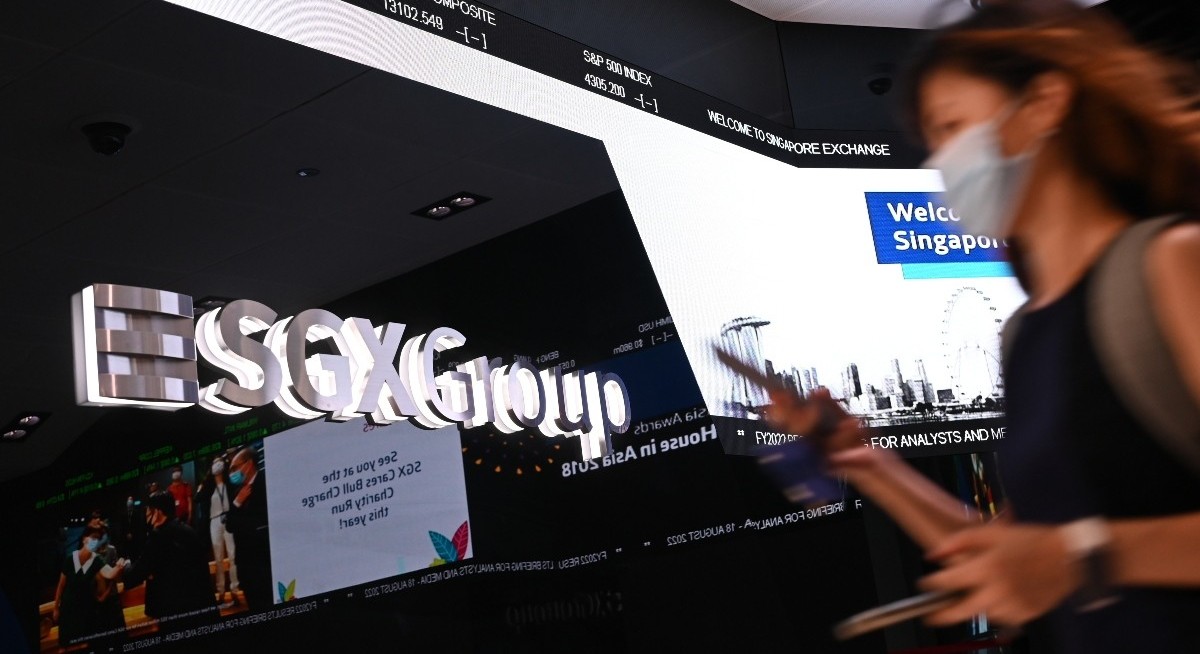“We believe global rate cuts and a weaker US dollar will boost liquidity [and] asset valuations in Asian markets,” say Vu and Batra. “Singapore has been among the countries that have seen strong capital inflows so far in 2025, which has led to the Singapore dollar firming up and interest rates declining sharply.”
JPM economists expect the US Federal Reserve to cut the policy rate by 75 basis points (bps) over the next six months. “Thus, liquidity expansion would continue in the future, which in our view, will support flows into Singapore equities,” say JPM’s analysts.
In a Sept 21 note, Vu and Batra say the equities market review group’s measures could drive the market return on equity (ROE) close to the 12% average seen in 2012-2013, bringing the price-to-book ratio (P/B) valuation back to the highs of 1.9 times to 2.0 times.
This would boost the STI to JPM’S “blue sky” projection of “6,000 and beyond”.
“We forecast market returns will be largely driven by a price-to-earnings (PE) multiple re-rating over the next 12 months, as markets incrementally gain comfort with recent developments, in addition to strong capital inflows and a weaker US dollar,” they add.
Meanwhile, JPM’s base case for Singapore’s 30-stock bellwether index is 5,000 points, which would imply a 15 times PE multiple (still lower than the 2007 and 2021 highs) on trend earnings that continue to grow at a rate of around 5%.
Select sectors
The STI has set multiple all-time highs since closing above 4,000 points for the first time in July. JPM believes the measures by the equities market review group will help broaden these gains to certain sectors.
Similar reforms in Japan — namely the Tokyo Stock Exchange’s “P/B reform” that began in January 2023 — led to a steady improvement in ROE across the market, write Vu and Batra.
“We believe Singapore equities could see a similar impact, with the improvement likely to be more visible in sectors/stocks with lower ROE versus history/regional peers, such as real estate, IT and consumer [sectors],” they add.
In Singapore, 48% of companies have ROEs that are higher than their cost of equity (COE), lower than 50% in Japan and over 80% in the US.
Meanwhile, 33% of non-financial stocks here have a net-cash balance sheet, compared to 16%-18% in the US and the European Union (EU), note Vu and Batra.
“In our view, a push to improve shareholder value would lead to: corporates slimming down balance sheets through increased dividend payouts/share buybacks; a shift in capital allocation through asset recycling/spinning off; and better visibility on company long-term visions and strategic growth objectives,” they add.
For more stories about where money flows, click here for Capital Section
Screening for stocks
The Monetary Authority of Singapore (MAS) unveiled the equities market review group’s first set of proposed measures in February, including a $5 billion equity market development programme (EQDP) that is appointing fund managers with fund strategies to invest in local small- and mid-caps.
MAS appointed Avanda Investment Management, Fullerton Fund Management and JP Morgan Asset Management as the first batch of asset managers, and will place a combined initial sum of $1.1 billion among them.
MAS also announced in July additional measures to strengthen investor protection by enhancing avenues for investor recourse. The financial regulator is now consulting on proposals to enhance existing legal provisions, along with a proposed grant scheme to defray the costs of organising investors and taking legal action for cases involving market misconduct.
The final measures are expected to be announced in the equities market review group’s second tranche of announcements.
On Sept 22, the Singapore Exchange (SGX Group) launched two related indices to track the performance of the next 50 stocks outside the flagship STI, in an attempt to “help investors follow how the next tier of large and liquid companies are evolving”.
The iEdge Singapore Next 50 Indices will be available in two variants, one weighted by market capitalisation and the other by liquidity.
“Small- and mid-cap stocks with decent liquidity, visible earnings growth and healthy balance sheets will be the center of attention due to EQDP funds focus and the potential candidacy of the new equity index,” says JPM. “We believe the overall value-unlocking movement of the government will incentivise corporates to increase dividend payouts and enhance ROEs. This would help stocks trading at a discount versus their book value, and/or having high liquid assets on their balance sheets.”
Read more about ongoing measures to enhance the Singapore equities market:
SGX’s ‘Next 50’ indices to benchmark and help funnel potential components into STI (September)
MAS picks Avanda, Fullerton, JP Morgan under $5 bil Equity Market Development Programme (July)
MAS to consult on ways to enhance investor recourse (July)
Equities market review group targeting ‘mid-sized but good-sized’ companies to list in Singapore (February)
Proposing equity market changes a ‘balancing act’ that comes with ‘trade-offs’: Chee Hong Tat (February)




